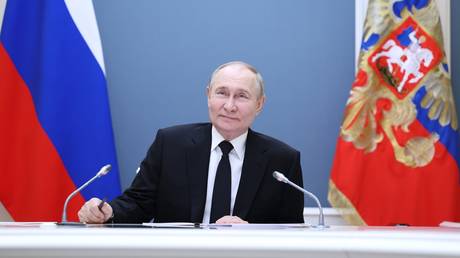Putin and Xi top the G6+1
by Pepe Escobar, Asia Times:
 East vs. West: the contrast between the “dueling summits” this weekend was something for the history books.
East vs. West: the contrast between the “dueling summits” this weekend was something for the history books.
All hell broke loose at the G6+ 1, otherwise known as G7, in La Malbaie, Canada, while all focused on divine Eurasian integration at the Shanghai Cooperation Organization (SCO) in China’s Qingdao in Shandong, the home province of Confucius.
US President Donald Trump was the predictable star of the show in Canada. He came late. He left early. He skipped a working breakfast. He disagreed with everybody. He issued a “free trade proclamation”, as in no barriers and tariffs whatsoever, everywhere, after imposing steel and aluminum tariffs on Europe and Canada. He proposed that Russia should be back at the G8 (Putin said he has other priorities). He signed the final communiqué and then he didn’t.
Trump’s “I don’t give a damn” attitude drove the European leaders assembled in Canada crazy. After the official photo shoot, the US president grabbed the arm of new Italian Prime Minister Giuseppe Conte and said, in ecstasy, “You’ve had a great electoral victory!”
The Euros were not pleased and forced Conte to abide by the official EU, as in German Chancellor Angela Merkel’s, policy: no G8 readmission to Russia as long as Moscow does not respect the Minsk agreements. In fact it is Ukraine that is not respecting the Minsk agreements; Trump and Conte are fully aligned on Russia.
Merkel, in extremis, proposed a “shared evaluation mechanism”, lasting roughly two weeks, to try to defuse rising trade tensions. Yet the Trump administration does not seem to be interested.
“Strategic” game-changer
Meanwhile, over in Qingdao, the stunning takeaway was offered predictably by Chinese President Xi Jinping; “President Putin and I both think that the China-Russia comprehensive strategic partnership is mature, firm and stable.”
This is a massive game-changer because officially, so far, this was a “comprehensive partnership.” It’s the first time on record that Xi has put the stress on “strategic”. Again, in his own words: “It is the highest-level, most profound and strategically most significant relationship between major countries in the world.”
And if that was not far-reaching enough, it’s also personal. Xi, referring to Putin and perhaps channeling Trump’s bonhomie with leaders he likes, said, “He is my best, most intimate friend.”
Heavy business, as usual, was in order. The Chinese partnered with Russian nuclear energy giant Rosatom to get advanced nuclear technologies and diversify nuclear power contracts beyond its current Western suppliers. That’s the “strategic” energy alliance component of the partnership.
In a trilateral Russia-China-Mongolia meeting, they all vowed to go full steam ahead with the China-Mongolia-Russia Economic Corridor – one of the key planks of the New Silk Roads, known as the Belt and Road Initiative (BRI).
Mongolia once again volunteered to become a transit hub for Russian gas to China, diversifying from Gazprom’s current direct pipelines from Blagoveshchensk, Vladivostok and Altai. According to Putin, the Eastern Route pipeline remains on schedule, as does the US$27 billion liquefied natural gas (LNG) plant in Yamal being financed by Russian and Chinese companies.
On the Arctic, Putin and Xi went all the way for developing the Northern Sea Route, including crucial modernization of deep-water ports such as Murmansk and Arkhangelsk, and investment in infrastructure. The added geopolitical cachet is self-evident.
Putin had said last week that annual trade between Moscow and Beijing will soon reach US$100 billion. Currently, it stands at US$86 billion. Now Russian businesses venture the possibility of reaching US$200 billion by 2020 as feasible.
All this frenzy of activity is now openly described by Putin as the interconnectivity of BRI and the Russia-led Eurasia Economic Union (EAEU). Not to mention that the SCO itself interconnects with both BRI and the EAEU.
Putin told Chinese TV channel CGTN that though the SCO began as a “low-profile organization” [back in 2001] that sought merely to “solve border issues” between China, Russia and former Soviet countries, it is now evolving into a much bigger global force.
In parallel, according to Yu Jianlong, secretary general of the China Chamber of International Commerce, the SCO has now gathered extra collective strength to harness BRI expansion to increase business across Europe, the Middle East and Africa.
So it’s no wonder companies from SCO nations are now being “encouraged” to use their own currencies to seal deals, bypassing the US dollar, as well as building e-commerce platforms, Alibaba-style. So far, Beijing has invested US$84 billion in other SCO members, mostly in energy, minerals, transportation (including, for instance, the China-Kyrgyzstan-Uzbekistan highway), construction and manufacturing.
Putin also met with Iranian President Hassan Rouhani on the sidelines of the SCO and vowed in no uncertain terms to preserve the Iranian nuclear deal, known as the JCPOA.



